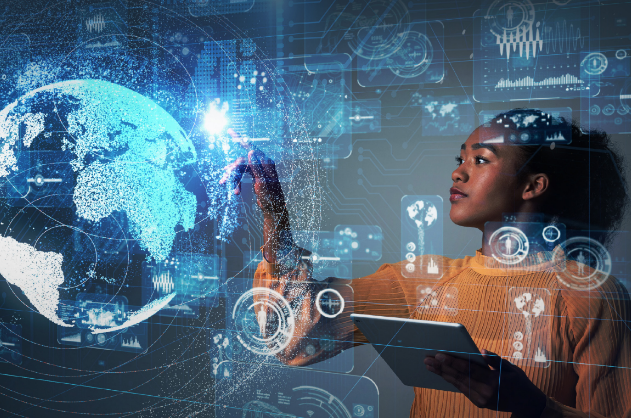How is AI set to change life in school and at home?

In 2023, artificial intelligence (AI) is not what we once knew it to be. Over the past 70-80 years, AI has rapidly evolved from computers that can perform basic functions and play chess, to hoovers that can autonomously clean homes, voice-activated virtual assistants, self-driving cars, and even robots that can hold conversations so realistic that they almost seem human.
Essentially, artificial intelligence is a machine that has the ability to simulate that of human intelligence: thinking, learning, and problem-solving. Now a necessity in the everyday life of most people, AI has also made its way into the workplace, assisting employees with tasks that are possibly on the more mundane and repetitive side by taking on the roles of analysts, security, chatbots, and more.
The education sector in particular has witnessed a huge rise of AI involvement in recent years. Its ability to save teachers’ time means that artificial intelligence has become a valuable resource in schools. Not only can it be used to complete administrative tasks, but to also focus on the performance of students.
Rather than marking each student’s multiple-choice tests one-by-one and by hand, teachers can input this data into a computer or instruct their students to complete the test online, where the technology allows for students to receive their grades upon completion. This also means that data can be collected about how students have performed, informing teachers where to focus their lessons next. As a result of time saved in the classroom, more time can be allocated to teaching.
Some AI technologies can even be used to interact with staff members and students on a more personal basis and in a physical capacity. For instance, St John Bosco Arts College in Croxteth, Liverpool, recently became the first school in the UK to trial advanced robotics technology with ‘BellaBot’.
BellaBot is able to collect and hand out supplies, show visitors around the school, and develop emotional connections with those it speaks to – even recommending books to students. Headteacher of St John Bosco Arts College, Darren Gidman, said: “The robots will provide a unique and engaging learning experience for our students, preparing them for the modern world and its evolving technologies.”
Recently, the ethics of AI and its risks to education hit the headlines due to the emergence and rise of the highly intelligent chatbot, ChatGPT. Perhaps controversially, ChatGPT can interpret and respond to very specific prompts given by users. Having been trained using the internet, books, user input and more, the software can conjure accurate and detailed, human-like responses, fulfilling requests such as writing essays, programming, and other tasks.
Its capacity to write informative essays that adhere to particular guidelines has meant that a lot of students have been using it to avoid completing their assignments and exams themselves. Popular submission and plagiarism detection software, Turnitin, was able to detect some AI-written essays, but not all; many were able to bypass the system by making edits to documents written by ChatGPT. As a result, some students have unfairly received grades that are not reflective of their true ability, and where assessments are graded on a curve, other students’ grades have suffered. This poses a huge, unethical risk to the education of many; especially those who are becoming too reliant on artificial intelligence to complete work on their behalf.
Students relying on this software are thus not learning content to the extent that they could be and are likely to struggle more when completing offline exams, effecting their overall grades. Educators are also unaware of the areas that these students require more assistance with. The consequences for being caught using this technology in an exam-setting are significant; individuals can be disqualified and banned from retaking the qualification. This is something that has happened on various occasions lately following the surge of ChatGPT, and it has certainly left a mark on the way that plagiarism detectors will be developed and improved from now on.







